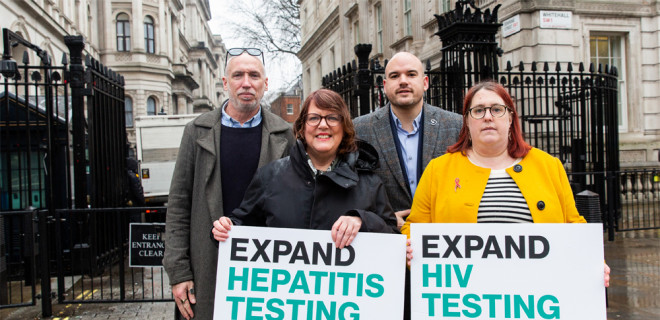The UK Government’s commitment to end new HIV transmissions by 2030 is an ambitious and achievable goal. But it can only be achieved by responding to the different needs of everyone with appropriate interventions.
Unequal progress
We won't end new cases of HIV if we don’t bring everyone at risk of HIV along with us.
In the UK the two groups most affected by HIV are gay and bisexual men and heterosexuals of Black African ethnicity. While we have seen great progress in declining numbers of new diagnoses for both these groups, we have to address the disparity in late diagnosis.
In 2019, 44% of all people diagnosed with HIV were diagnosed late, an unacceptably high level. 35% of gay and bisexual men and 50% of heterosexuals of Black African ethnicity were diagnosed late, a clear difference between the two most affected groups.
When people are diagnosed late – most often with three or more years of not knowing they have HIV – it can leave lasting damage to the immune system and can increase the chances of HIV being passed on.
To tackle late diagnosis, we have to ensure that everyone is tested at the earliest opportunity. I believe that opt-out HIV testing in accident and emergency departments and GPs in areas of high HIV prevalence can play a significant role in this. This is a tried and tested approach but, unfortunately, it's not centrally funded, leaving this important intervention unavailable in many parts of the country where it can make a difference.
Why opt-out testing?
The number of people that have to be tested to diagnose just one new person with HIV is growing each year so we need to make every testing opportunity count, especially in the right places. This will help address late diagnosis and undiagnosed HIV faster – and save the NHS money. Opt-out HIV testing in accident and emergency departments departments and GPs in areas of high and extremely high HIV prevalence is perfect for this.
In 2019, for heterosexuals of Black African ethnicity, it took testing 307 people to diagnose just one person. With an estimated 1,300 heterosexuals of Black African ethnicity living with undiagnosed HIV in the UK, the number of people that need to be tested to get everyone diagnosed is huge.
Quote textThe Chancellor can only listen if he is asked. We need you to write to him and the Health Secretary today.

Tried and tested
Opt-out HIV testing is not new: pregnant women already experience opt-out testing. As part of routine antenatal care, all expectant mothers are automatically tested for HIV – unless they opt out. Take up rates are extremely high – over 99% – and this has proved a highly effective means to diagnose women and stop vertical transmission, as well as raising awareness of HIV.
Opt-out HIV testing has also been piloted in emergency departments in south London, led by the Elton John AIDS Foundation (EJAF). Everyone who attended accident and emergency was tested for HIV unless they opted out.
The results from the EJAF pilots are staggering. It was highly effective at identifying and diagnosing HIV amongst people of Black African ethnicity. The data indicated that those found with a late diagnosis through accident and emergency HIV testing were disproportionately women, Black African, Black Caribbean, and Black Other ethnicities, and older adults. Of those diagnosed, 54% were Black – significantly higher than the London and national average.
This effectiveness has led other hospitals in to seek funding to implement opt-out testing, but with muted success. Considering how effective opt-out testing is, why is there not a central fund to make this happen in all areas of high HIV prevalence?
Act now and write to the Chancellor
Now we have the opportunity to ensure that all areas at high risk of HIV can implement opt-out testing. The UK Government is currently writing its national HIV Action Plan to set out how it will end new HIV transmissions. Opt-out testing in emergency departments must be a key commitment in the action plan. The 55 hospitals located in areas of high HIV prevalence should be the priority, since they cover all the areas with high Black African populations.
But the words in the plan will be nothing without funding. The upcoming Comprehensive Spending Review will set out health funding for the next three years. This must include funding to roll out opt-out testing in emergency departments.
The Chancellor can only listen if he is asked. We need you to email him and the Health Secretary today. It's quick and simple to do.
Don’t let your voice go unheard.
Write to the Chancellor and Health Secretary
Conclusion
The truth is the NHS is seeing Black patients but not seeing the undiagnosed HIV in the community. Too often people present with a warning sign they might be living with HIV but it goes unnoticed. The undiagnosed Black people in the UK are a simple test away from knowing their status and life-changing treatment. It's high time we sorted this issue out.
We won't reach our goal of ending new HIV cases without it. We won't win our campaign without you.
Takudzwa Mukiwa is Head of Social Marketing at Terrence Higgins Trust.



